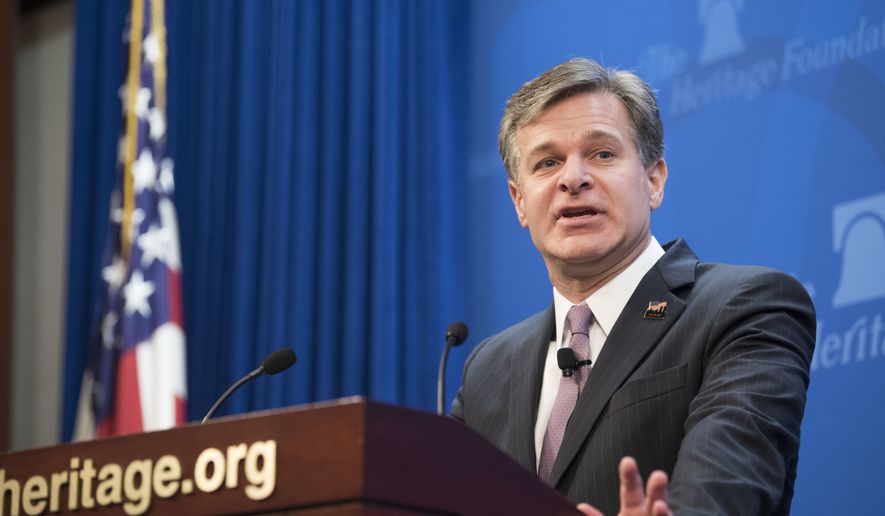Here’s one thing civil liberties groups and U.S. law enforcement leaders agree on: Neither like the House Judiciary Committee’s proposal for reauthorization of a key foreign intelligence surveillance law.
A broad coalition of civil and privacy rights groups voiced their opposition on Friday to the USA Liberty Act, the committee’s proposal to renew the federal government’s spying powers under Section 702 of the Foreign Intelligence Surveillance Act, saying it does not go far enough to protect Americans’ privacy.
On the opposite end of the spectrum, FBI Director Christopher Wray also voiced opposition Friday to any proposal that would limit the scope of law enforcement and intelligence agencies’ authority under the law.
“Any material change to FBI’s use of 702 would severely inhibit our ability to keep the American people safe,” he said.
Section 702 allows authorities to collect and review emails and other communications of foreigners who are located outside the United States, but Americans’ communications can be incidentally swept up in surveillance of other targets. Investigators can later query the information collected as they investigate other matters.
Among the changes the USA Liberty Act would make to intelligence agencies’ authority, it would require investigators to ask a federal court for permission to use information collected under Section 702 in a criminal probe and it would end their ability to collect Americans’ communications with foreigners outside the U.S. based solely on the mention of a foreign surveillance target.
Instead, only communications that are directly to or from surveillance targets could be collected, a change the National Security Agency has already adopted.
Groups including the American Civil Liberties Union, NAACP, and National Association of Criminal Defense Lawyers wrote to lawmakers Friday to lay out their opposition to the judiciary committee’s proposal — which they say leaves in place loopholes that authorities can exploit to surveil Americans without first obtaining a warrant.
They said the bill’s most “glaring deficiency” is the fact that while it requires agencies to obtain a warrant to access Section 702 data for criminal investigations involving people who are not direct targets of the surveillance, it does not similarly require a warrant to access such data when the primary purpose is to collect foreign intelligence.
“For example, under this exception, the government would have free rein to search and access the content of religious organizations and civil society groups, Congressional staff, and other innocent Americans without a warrant simply if it asserted that the primary purpose was to gather information related to the policies of a foreign country,” the groups wrote.
Addressing a crowd at the Heritage Foundation, Mr. Wray said he’s concerned some of the proposed changes to the Section 702 spying authority could reverse progress that various government agencies have made in sharing information since the Sept. 11, 2001, terror attacks.
“The value of Section 702 is that it gives us the lawful ability to connect those dots, between foreign threats and homeland targets,” Mr. Wray said.
The 9/11 Commission found that lack of information sharing between intelligence and law enforcement agencies was a key factor in the failure to stop the terror attacks. The FBI director, who was a high-ranking Justice Department official when the attacks occurred, said afterward agencies worked systematically to tear down the walls that had prevented information sharing between relevant agencies.
“Unfortunately some of the potential amendments that we’ve heard about as part of this reauthorization discussion strike me as eerily similar to essentially rebuilding walls like we had before 9/11,” Mr. Wray said. “It’s like watching well-intentioned people start positioning bricks back in the wall again — perhaps growing complacent for the fact we haven’t had another attack.”
Section 702 authority is set to expire at the end of the year without reauthorization from Congress.
• Andrea Noble can be reached at anoble@washingtontimes.com.




Please read our comment policy before commenting.